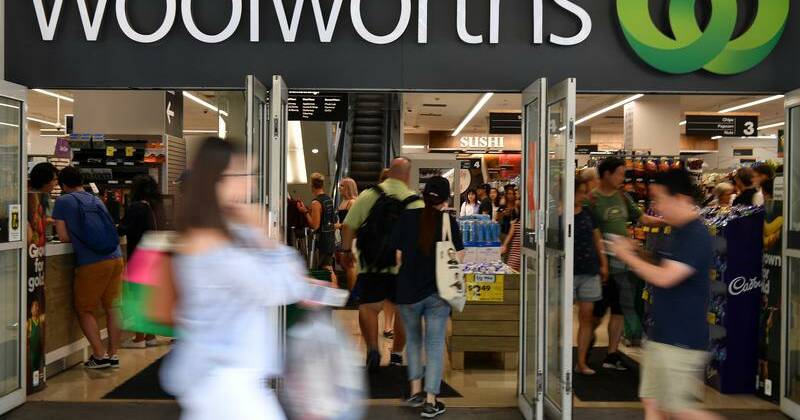
UPDATE: Woolworths has just announced disappointing earnings results for the 2024/25 financial year, attributing the decline to ongoing cost-of-living pressures, aggressive price cuts, and significant worker strikes. The supermarket giant reported a modest 3.6 percent increase in sales, totaling $69.1 billion, but this fell short of market expectations.
During the company’s annual general meeting on Thursday, Chairman Scott Perkins expressed dissatisfaction with the company’s performance, stating, “Neither your board nor the management team is satisfied with recent performance.” He acknowledged that external distractions, including regulatory inquiries and industrial actions, have impacted operations significantly.
Woolworths faced a staggering $100 million hit due to a 17-day strike by distribution center workers at the end of 2024. Perkins admitted that these issues led to a loss of customer trust in their pricing strategies, saying, “We took our eye off the ball during a period of quite dramatic change.”
New CEO Amanda Bardwell indicated that household budgets are still strained, causing shoppers to prioritize bargain hunting. The supermarket reported a 2.7 percent increase in sales for the first quarter of the 2025/26 financial year, reaching $18.5 billion. However, this growth lagged behind rival Coles, which reported a 3.9 percent increase to $10.5 billion in the same period.
Bardwell addressed shareholders directly about the disappointing results, stating, “We want to be the first choice for customers for the freshest Australian food.” The atmosphere at the meeting was tense, as shareholders voiced concerns regarding the company’s handling of salmon products.
The issue of salmon farming resurfaced, as executives faced criticism for continuing to sell farmed salmon from Tasmania’s Macquarie Harbour, which is linked to threats against the endangered Maugean skate. Shareholders criticized Woolworths for labeling these products as “responsibly sourced,” especially since Coles has removed such claims from its packaging.
More than one-third of shareholders voted in favor of Woolworths identifying and reporting the impacts of farmed seafood, while 14 percent supported a motion to align with global best practices. Ethical share trading platform SIX’s Phoebe Rountree emphasized that this vote sends a powerful message to Woolworths about the importance of addressing environmental risks.
Perkins defended the company’s practices by citing research from the University of Tasmania, suggesting that skate populations have rebounded. “However, if the evidence changes, so too will our position,” he stated, urging shareholders to understand that this is not a crusade by Woolworths.
As the supermarket navigates these challenges, all eyes will be on the company’s next steps to regain consumer trust and improve performance. Investors and customers alike are eager for Woolworths to respond effectively to the pressing concerns raised during this high-stakes meeting. The future of Australia’s largest supermarket chain depends on adapting to the evolving market dynamics and consumer expectations.
Stay tuned for further updates as this situation develops.





